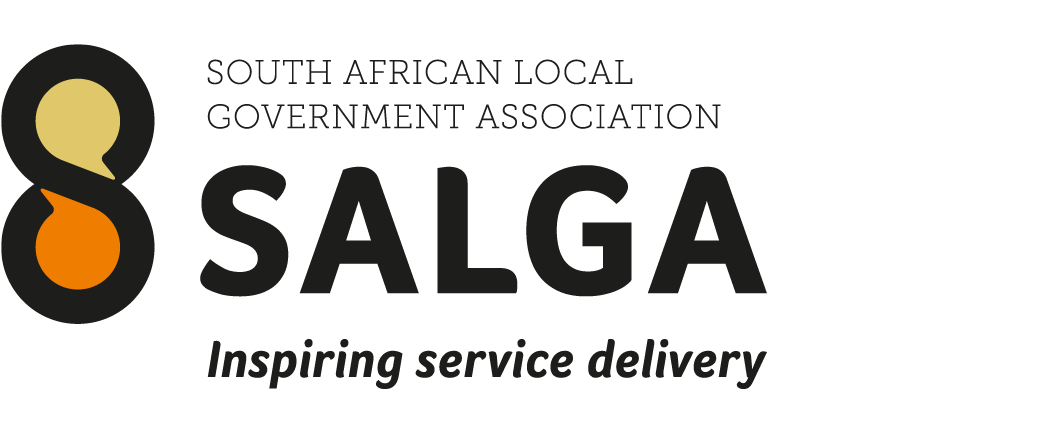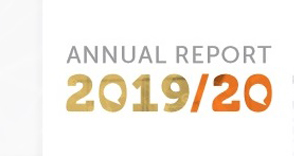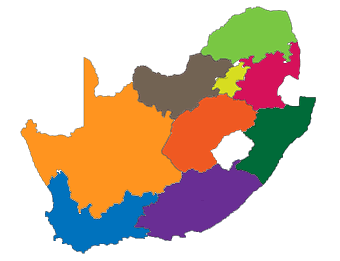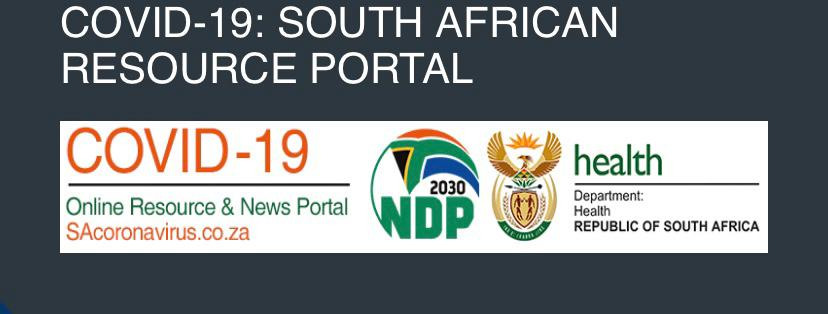
 |
 |
 |
 |
||||
 |
 |
 |
 |
 |
SALGA NEWS |
Upcoming Events |
 |
Annual Report |
 |
 |
|
Quick Links |
 |
Municipalities |
 |

|
|
Social Media |
 |
Follow Us on Social Media
|
|
Presidential Commission on the Fourth Industrial Revolution (PC4IR) Strategic Implementation Plan Virtual Consultative Workshop
Posted: 22 June 2021
 |
The coronavirus pandemic has been a catalyst for the embracing of new technologies and South African municipalities must react quickly and adapt to these changes in order to meet the evolving needs of their communities.
This is according to South African Local Government Association (SALGA) Chief Executive Officer (CEO) Xolile George, who on Thursday, 10 June 2021, addressed a virtual Consultative Workshop on the PC4IR Strategic Implementation Plan for municipalities.
Harnessing opportunities arising from technological developments
George explained that the COVID-19 pandemic has been an accelerant for the Fourth Industrial Revolution and municipalities across the length and breadth of South Africa should see this an opportunity to be welcomed and not a problem to be confronted.
Among the reasons for this was that the 4IR presents municipalities with a unique opportunity to improve the quality and access to service delivery, improve public participation and accountability in local government through the use of digital enabled solutions.
“The fourth Industrial Revolution (4IR) that we thought would be executed in a staggered manner has actually been imposed on us by the realities of COVID-19. I think it’s a very positive development,” said George.
“And for us it’s to make sure that our municipalities are not left behind, that they are armed with the right tools to understand these frameworks to drive better investments on how to improve the quality of their operating systems.”
Aims and objectives of the virtual workshop
The virtual workshop, which was facilitated by Kutlwano Chaba, SALGA Chief Digital Officer and Phila Sithole, Senior Research Expert from the Department of Communications and Digital Technologies (DCDT), brought together a range of stakeholders from within and outside local government for the purpose of collating local government sector inputs that will be integrated into the Presidential Commission on the 4th Industrial Revolution Strategic Implementations Plan (PC4IR SIP).
The Report sets out SA’s strategy, response, and framework for the 4IR. The PC4IR published recommendations in 2020.
This initiative has been given to the Department of Communications and Digital Technologies (DCDT) for implementation. The DCDT then produced a draft strategic implementation plan and seeks inputs from the local government sector through SALGA.
“I think the conversation today must help us to look at that implementation plan framework and make sure that we can look at the levers of execution, especially for the core structure of the recommendation that is likely to require agility at the level of local government,” said George.
“We are excited as SALGA to form part of the conversation, more so given the fact that when we start even thinking about the factors that must usher us into a smarter way of doing things, the operational geography of all of that will be local government.”
Setting the scene, Sithole explained that the DCDT established the 4IR Project Management Office (4IR PMO) to develop the PC4IR SIP and that the PMO has completed the PC4IR SIP consultative draft.
Stakeholders from academia, business and civil society are being consulted for the purpose of generating comprehensive perspective of SA’s current conditions and prospects in the 4IR.
“The PMO was formed last year by the ministry to lead in terms of drafting the implementation plan of the PC4IR and also to lead in terms of coordination monitoring the implementation of the PC4IR report,” said Sithole.
“The role of the PMO is to coordinate, facilitate and monitor the implementation of the 4IR program, which will be running across different government departments, municipalities, the private sector and we are also going to be talking to academia.”
The PC4IR SIP
Nokubalela Mchunu, a Blockchain Research Expert from the DCDT delivered a presentation on the PC4IR SIP and what it aims to achieve.
“The PC4IR SIP principles are modelled around the proposed pillars of the PC4IR report and the NDP 2030. These principles inform the rationale behind each intervention to achieve the primary objective of a ‘4IR-Enabled RSA’.”
She explained that those pillars are the essential fundamentals that form the basis for adopting 4IR programs and can be viewed from three pivotal broad strokes:
- Human centred- Develop People and Skills for a 4IR ecosystem, promotion of Human Rights, cybersecurity (human security, which reinforces human rights) and environmental protection,
- Economic focus- Economic development and inclusivity, international competitiveness,
- Technological advancement- Technological Transformation, invention and innovation and the building of sustainable infrastructure.
The workshop transitioned to a session that featured discussions on issues ranging from where the funding of transformation 4IR technology would come from, reskilling the public sector workforce for the 4IR to whether the PC4IR SIP would be affected by changing government leaders and governments.
Both Sithole and Mchunu allayed fears about the sustainability of the PC4IR SIP saying it would not be affected by the electoral cycle or the changing of Cabinet Ministers and that in order to apply the 4IR in the public interest, public sector workers needed to be reskilled in the areas of technical knowledge, data to inform decision making and priority programs and stakeholder engagement to mention but a few.
Chaba brought the workshop to a close, highlighting the need for South Africa’s local government sector to embrace innovation and new technologies that can mitigate service delivery-related challenges, capacity and capability challenges and constrained resources among others.
